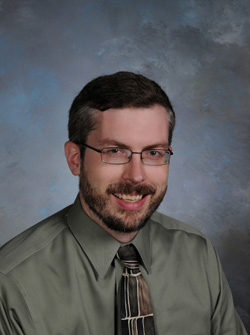 Jeff McClurken, chair and associate professor of history and American studies, had the article “Teaching and Learning with Omeka: Discomfort, Play, and Creating Public, Online, Digital Collections” published in the collection “Learning through Digital Media: Experiments in Technology and Pedagogy.”
Jeff McClurken, chair and associate professor of history and American studies, had the article “Teaching and Learning with Omeka: Discomfort, Play, and Creating Public, Online, Digital Collections” published in the collection “Learning through Digital Media: Experiments in Technology and Pedagogy.”
The essay was released in electronic form at http://learningthroughdigitalmedia.net. In addition, it was issued in published form by The New School as part of Mobility Shifts, a project supported by the John D. and Catherine T. MacArthur Foundation.
The article, which discusses the value of discomfort and open-source tools in teaching digital history, features a number of digital history projects by UMW students.
Read the article in its entirety.
